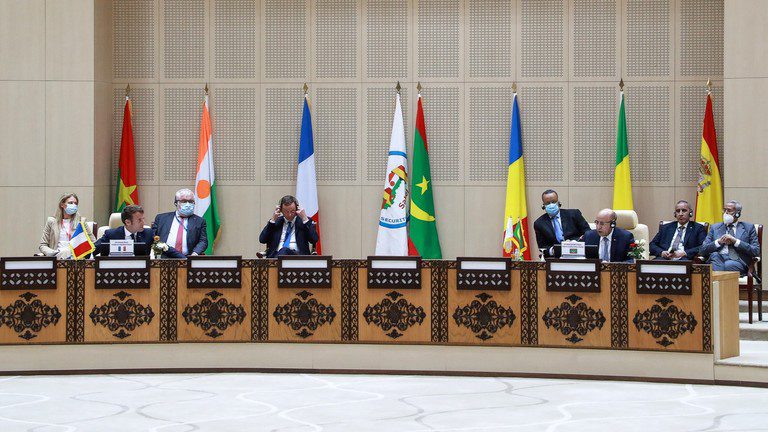Africa
Chad and Mauritania to end alliance with support from Paris

The two surviving members of the Paris-backed G5 Sahel alliance, Chad and Mauritania, declared on Wednesday that they were permitting the dissolution of the African anti-jihadist coalition. The three other founding members’ withdrawal preceded the decision.
When the G5 alliance was established in 2014, Mauritania, Chad, Burkina Faso, Mali, and Niger were members. After more than a decade of Islamist warfare in the Sahel, the five African nations decided to send a combined anti-terrorism task force there in 2017.
But this week, Niger and Burkina Faso declared their intention to leave all G5 Sahel organisations “in full sovereignty,” including the combined military force. In 2022, Mali announced his resignation from the organisation, citing its “instrumentalization by the outside world.”
Chad and Mauritania issued a joint statement on Wednesday expressing their recognition and respect for the West African countries’ decision to withdraw from the accord, which is backed by France.
The governments of Chad and Mauritius, which presently preside over the group, agreed to “implement all necessary measures in accordance with the provisions of the Convention on the Creation of the G-5 Sahel, particularly in its article 20.”
According to Article 20 of the agreement, the union may be dissolved at the request of three or more member states.
The Mauritanian News Agency said in a statement that “the Islamic Republic of Mauritania and the Republic of Chad intend to continue their efforts, with all the countries of the Sahel, to meet the challenges facing the region.”
Following coups in their respective nations, Mali, Niger, and Burkina Faso—all former French colonies currently ruled by the military—signed a charter in September to establish the Alliance of Sahel States (AES). All of the Sahelian military leaders have charged Paris with interfering and failing to put an end to the Islamist insurgencies that French troops were sent to confront ten years ago in the region.
At its first meeting last week, the foreign ministers of the three landlocked African nations decided on “appropriate measures” for the AES’s functioning.
The leaders of the coup in Niger think that the new union will turn the area from a “zone of insecurity” into a “zone of prosperity,” enabling all three nations to work together to combat threats to their shared security.
The G5 Sahel group’s security shortcomings were previously used by Niger and Burkina Faso as justification for their decision to leave the group.
